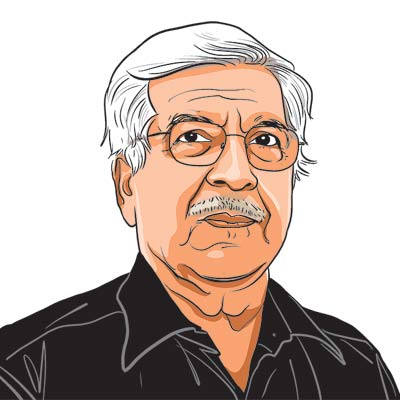Opinion Move beyond Kyoto
There is a totally unreal aspect to the discussion on Indias stand on climate change. Some of our protagonists are stuck in the original Kyoto mould.
There is a totally unreal aspect to the discussion on Indias stand on climate change. Some of our protagonists are stuck in the original Kyoto mould. But there was Bali,the original targets had slipped,so the base year was changed and the intent to cut kept. But that was only the atmospherics. The real issue was the new stand of countries like the US,China,and of other large countries.
By this time there was recognition that large countries enter the debate in a differential manner to use the jargon. They represent quantum jumps. In a model for India prepared by Kirit Parikh and me,in a business-as-usual scenario India starts demanding two billion tonnes of power-grade coal. Now we have plenty of power-grade coal; but we simply cannot burn two billion tonnes of coal with todays technology! Forget others,it would burn out our own lungs.
These studies make the point through quantitative models that large countries,when they grow fast,make quantum jump impacts in the global economy. Kirit redid the numbers for the Planning Commission long-term energy work where he changed the base numbers but the increments remained largely intact. With the quantum jumps negotiators from the period of slow growth have an ostrich-like tendency to get into denial mode. Also the tendency is to talk non-alignment. This is completely misguided; for actually both Nehru and most certainly Rajiv Gandhi,who refashioned doctrine for a fast-growing Indian economy,dealt with these problems in a dynamic mode. They had little patience for those who couldnt keep up intellectually.
The joker in the pack here was that Bush America also reiterated the doctrine that countries have to be considered differentially as Kyoto morphed into Bali. One of the most astute insights going into Bali was a Canadian statement that The US needs to be brought back in the tent,something that will not happen by trying to push American acceptance of the Kyoto framework. The developing world must be included,above all China and India. For that to happen there must be incentives in terms of growth potential for those countries. There are ways to make this happen.
Bali was not just Kyoto. It was more. For one thing the original quantitative roadmap was for all practical purposes gone,since the world hadnt lived up to it. Given the flexibility this created in the diplomatic space,the Chinese play their interest very well. At one level they agree with the urge to treat the larger framework of Kyoto as an achievement,but at another they play the negotiating stand of a country which will enter the arena in a big way and is willing to take on that responsibility. The statements of Premier Wen Jia Bao at the Pittsburgh G-20 meeting with the US were a clear indication of this.
Some of us,including Chinese scholars and experts,clarify that this does not mean that everything is smooth and that the Asian countries will play the game as the developed world sets it. Sustainable policies are not just questions of global negotiations,but have to grapple with issues of energy requirements,land use,food demand changes and agriculture and technology for meeting industrial and service requirements. If communities are out of balance with their resource endowments,there can be no question of significant advance in the areas of global concern like carbon sequestration or biodiversity. Strategic policy initiatives in the energy sector come out of all energy models including the ones Environment Minister Ramesh unveiled recently. But the perception that there are possibilities of bringing large countries together in a framework of discussion on such questions is correct.
Unfortunately the world has not learnt to negotiate on these terms and the knowledge-base listed remains untouched. The long-term language of the other remains an enigma and that is the problem when large countries come to grips. This is an unresolved question. In August 1982,I was a member of the first Indian delegation which went to China after almost a decade and a half. Vice Chairman Deng Xiaoping met us in the Hall of People. In 90 minutes he described the path that China took for two decades.
Large countries have options and these have to be placed within the design of a global framework. When Ramesh has reportedly said that India can negotiate from a vantage point of what its own long-term plans are,he is not giving up anything. He is laying down a position of strength. It is churlish to force him into a regressive black hole where the past forces back the orderly expanding future.
The writer,a former Union minister,is chairman,Institute of Rural Management,Anand
express@expressindia.com





